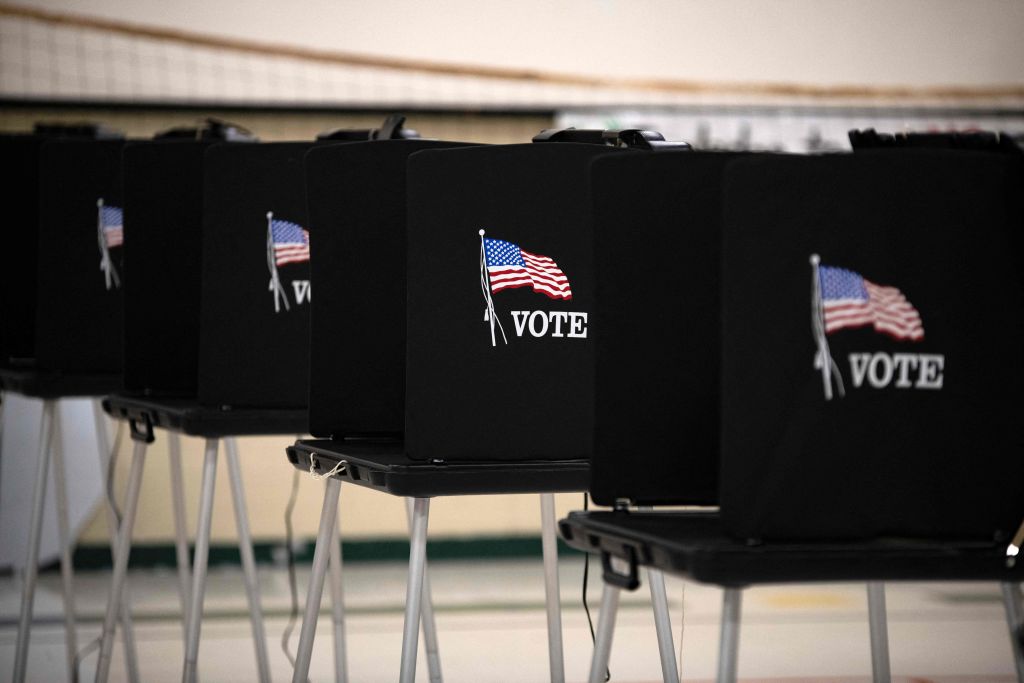Last month Arlington, Virginia, used a relatively complicated variant of ranked-choice voting in its primary to select two Democratic candidates for its county board. But the county will revert to conventional voting for a time at least, Teo Armus and Kyle Swenson report at the Washington Post:
The Arlington County Board declined to move forward Saturday with ranked-choice voting for November’s general election, halting the Northern Virginia suburb’s experiment with the increasingly popular voting system, for now.
Some will probably bill this as a rebuke of ranked choice voting (RCV) in general, but that’s not a fair assessment. Most of the 50 or so American cities and other jurisdictions that use RCV use a straightforward variant, suited to a race that elects a single winner to a single office (say, mayor or councilmember representing a particular district). Candidates with the fewest votes are eliminated in turn and their ballots redistributed to their voters' next choices until one candidate obtains a majority of the votes that remain. This kind of RCV, commonly called "instant-runoff voting," allows voters to weigh in immediately in a virtual runoff to resolve races in which no candidate won a majority outright. Instant runoff has the great virtue of simplicity: it's not only simple to explain how to fill out your ballot, but also simple to explain how the votes are then tabulated.
But ranked choice can also be used for multi-seat races in which the two or three top finishers each win a seat (or advance to a general election from a primary, as in Arlington). These models are more complicated. Even if voters grasp readily how to indicate their preferences on the ballot, the tabulation process is considerably harder to explain to the lay person than with the instant-runoff kind. In the Virginia law prescribing how localities may use ranked-choice voting, the rules for tabulating instant-runoff RCV consist of two sentences. The rules for tabulating multi-winner elections go on for 11 sentences and rely on concepts such as "current transfer value" and "surplus fraction."
On the plus side, multi-seat ranked choice elections can generate distinctive outcomes that single-seat RCV doesn't—in particular, elements of proportional representation (P.R.), in which the distribution of seats in a legislative body bears some rough relation to the overall vote for different parties (as in some parliamentary systems). That's one reason multi-seat RCV is popular internationally, where P.R. has long enjoyed much support, and why it's strongly backed by many American reformers who would like to move this country toward proportional representation. (My own views are here.)
In many ways, Arlington's experiment with a multi-seat version of ranked-choice voting appears to have worked much as intended. "Voters reported few issues at the polls in filling out their ballots," according to an account at DCist. An observer from the League of Women Voters said that "the tone of the campaign was more positive and ‘cordial’ because political attacks might alienate the supporters of other candidates. ‘Several candidates seemed to understand that they were asking for first choice votes, but also telling the voters, ‘Please consider me as your second or third choice,’” she said. And while reporting of final results took quite a while, that was owing not to delays in tabulation itself but to relaxed rules unrelated to ranking on how late ballots could arrive and still be counted.
The outcome was also noteworthy. Arlington and its dominant Democratic Party have been—and still are—split sharply between supporters and opponents of zoning reforms to address intense housing demand and rising prices. In a six-person field largely defined by this issue, voters split the two seats between candidates from each camp—probably an accurate reflection of the real and deep community split. In fact, both winners praised the use of RCV. (It's easier to like the results when you win, of course.) “There are two different constituencies that came out and voted and had two different sets of priorities,” said Maureen Coffey, who favored more housing, “but both groups get someone to represent them on the board.”
To be sure, there were drawbacks. One is hinted at by an informal ARLnow online poll which found that while less than 10 percent of respondents were confused about how to cast a vote, more than double that number said they were confused about how their vote would be tabulated afterward. Responses about how well the county had educated voters about the new rules also varied. The county's old-style voting machines permitted voters to rank only their three top candidates, even though many would have preferred to rank all six. Finally, some suspected that the county's ruling Democratic officials, while willing to experiment with making elections more representative and proportional within their party through the primary, were not as highly incentivized to stick with the same plan when the rules might work to benefit non-Democratic candidates in the general (a Republican and an Independent are on the ballot in the November general, though both are considered long shots.)
It's notable that for all the popularity of multi-seat ranked choice voting abroad, there's only one well-known municipality in the U.S. that has been using it happily for decades—-Cambridge, Massachusetts. Like Cambridge, Arlington is a highly educated community with many civically aware voters. That's one reason it's too soon to pronounce whether Saturday's announcement represents a lasting setback for proportional-representation reforms like ranked choice voting, or more a passing hiccup.






Please note that we at The Dispatch hold ourselves, our work, and our commenters to a higher standard than other places on the internet. We welcome comments that foster genuine debate or discussion—including comments critical of us or our work—but responses that include ad hominem attacks on fellow Dispatch members or are intended to stoke fear and anger may be moderated.
With your membership, you only have the ability to comment on The Morning Dispatch articles. Consider upgrading to join the conversation everywhere.